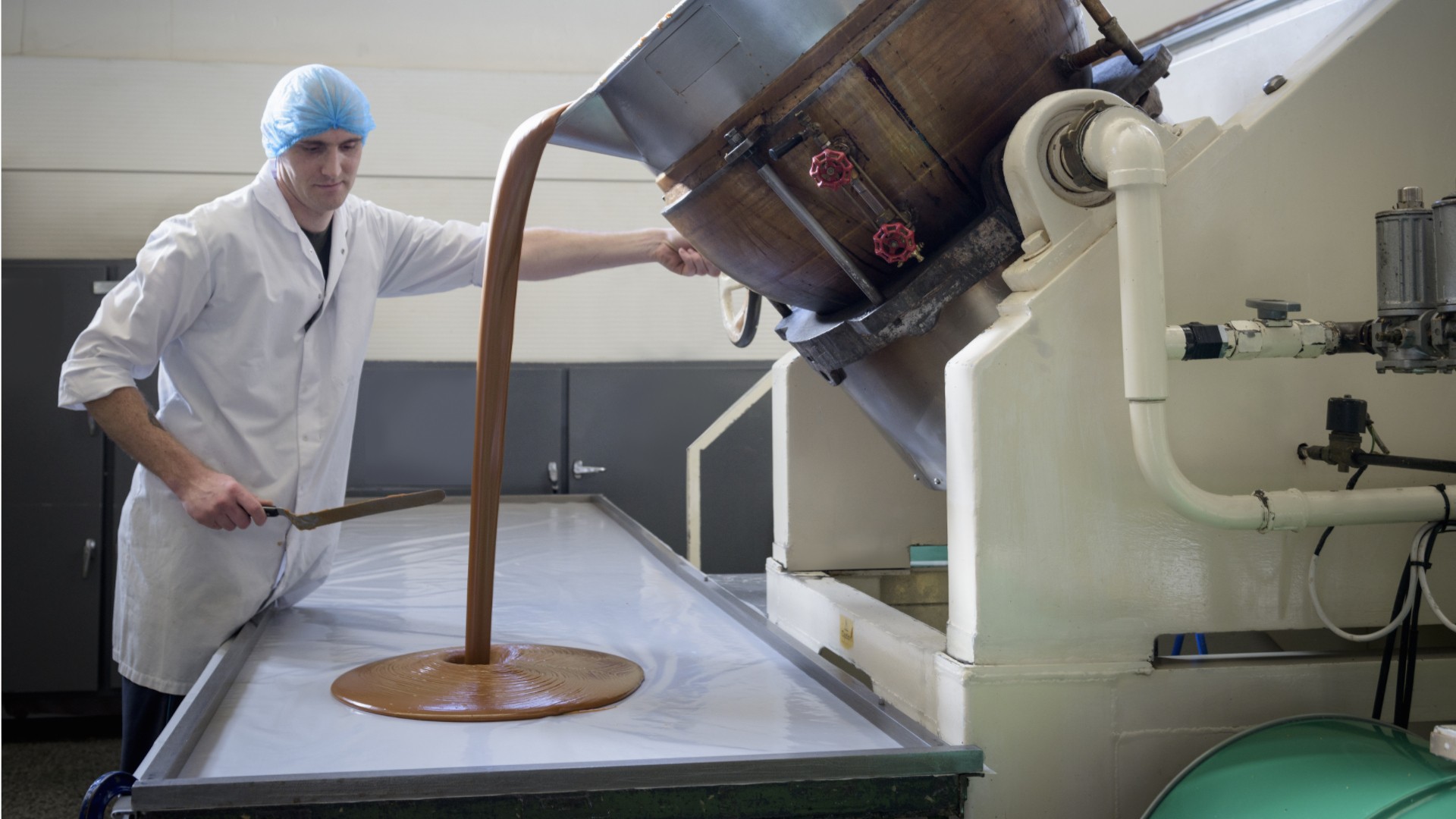Food & Tobacco Roasting, Baking, & Drying Machine Operators & Tenders
Coffee Roaster, Machine Operator, Roaster, Roasterman
 Select a military branch to see samples.
No similar titles were found.
Select a military branch to see samples.
No similar titles were found.
Culinary Specialist
Culinary Specialist
Food Service Specialist
Culinary Specialist; Culinary Specialist (Submarine); Submarine Culinary Specialist
No similar titles were found.
What they do:
Operate or tend food or tobacco roasting, baking, or drying equipment, including hearth ovens, kiln driers, roasters, char kilns, and vacuum drying equipment.
On the job, you would:
- Observe, feel, taste, or otherwise examine products during and after processing to ensure conformance to standards.
- Set temperature and time controls, light ovens, burners, driers, or roasters, and start equipment, such as conveyors, cylinders, blowers, driers, or pumps.
- Observe temperature, humidity, pressure gauges, and product samples and adjust controls, such as thermostats and valves, to maintain prescribed operating conditions for specific stages.
Knowledge
Manufactured or Agricultural Goods
- manufacture and distribution of products
- food production
Arts and Humanities
- English language
Safety and Government
- public safety and security
Skills
Basic Skills
- keeping track of how well people and/or groups are doing in order to make improvements
- listening to others, not interrupting, and asking good questions
Problem Solving
- noticing a problem and figuring out the best way to solve it
Abilities
Hand and Finger Use
- keep your arm or hand steady
- hold or move items with your hands
Verbal
- listen and understand what people say
- communicate by speaking
Personality
People interested in this work like activities that include practical, hands-on problems and solutions.
They do well at jobs that need:
- Attention to Detail
- Dependability
- Cautiousness
- Stress Tolerance
- Perseverance
- Achievement Orientation
Technology
You might use software like this on the job:
Spreadsheet software
- Microsoft Excel
Electronic mail software
- Email software
Education
Education: (rated 2 of 5)
high school diploma/GED or
no high school diploma/GED
usually needed
no high school diploma/GED
usually needed
Get started on your career:
Find Licenses
Apprenticeship.gov
Job Outlook
Below Average
New job opportunities are less likely in the future.
Explore More
- Food Batchmakers
- Food Cooking Machine Operators & Tenders
- Furnace, Kiln, Oven, Drier, & Kettle Operators & Tenders
- Graders & Sorters, Agricultural Products
- Separating, Filtering, Clarifying, Precipitating, & Still Machine Setters, Operators, & Tenders
You might like a career in one of these industries:
See more details at O*NET OnLine about Food & Tobacco Roasting, Baking, & Drying Machine Operators & Tenders.





